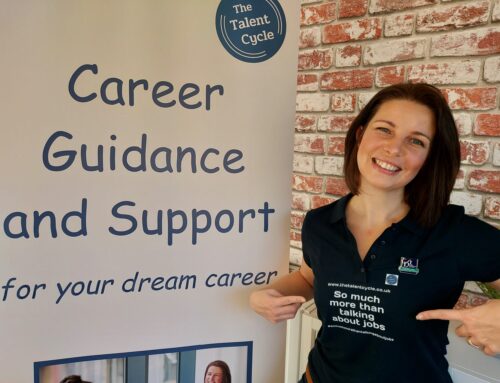Well, that was the year that was…
Here we are coasting down (hopefully) towards the end of the year and a chance of a bit of a rest. I doubt any of us can say we’ve had the best year ever.
The 20/21 academic year has been one of the most difficult years for education since probably World War II and even I don’t remember back that far! So, I thought I’d look at some of the good things that have come from the adversity that we’ve all faced. Obviously, there are negatives, but let’s leave those aside for now and end the year on a positive note.

Remote networking and CPD
One of the positive aspects that has come out of Covid is the rapid assimilation of virtual platforms. Cutting out travelling has opened a huge range of CPD and networking possibilities. I’ve been able to deliver INSET across the country without leaving my home which has been great for me and has also cut the cost to the organisation putting on the event. It also means that schools and colleges across a wider area can access the training and not be restricted by their location.
Social distancing of employer engagement
This too has moved into the virtual arena. The same positives are true here. It’s easier to get a whole class into a virtual tour of a facility. No travel means no risk assessments and more chance of getting approval for the activity as pupils are only out of classes for the actual time engaged with the employer. Oh yes and let’s not forget the time you would have spent sending out and collecting (chasing) parental permission slips. That would be a major plus for me.
Remote work experience
Remote WEX can be slightly less satisfactory in as far as it does limit the ‘realism’ of the working situation and lessen the pupil’s encounter with the working environment.
However, it can open opportunities for extended project-based work experience. For example, a group of students can work on small projects such as marketing or R&D under the guidance of an employer-based mentor during Business Studies or Art & Design lessons over the course of a term or so, thus supporting Gatsby Benchmark 4.
It can also mean access to often hard to find opportunities such as those in medicine or building which are often plagued with problems over confidentiality or health and safety.
New CDI framework
The long-awaited new CDI framework for careers was published in spring 21 with 6 main areas rather than the previous 17. Now fully mapped to the Gatsby Benchmarks, it offers a chance to update our schemes of work for the coming year and perhaps to use the associated resources to audit the curriculum of your school to see how each of the subjects are supporting careers learning and thus Benchmark 4. The new framework and resources can be found here.1
Primary schools focus on careers learning
It’s been a while since primary careers learning has been at the forefront of educator’s minds. However, the Government allocating money for the CEC 2 to investigate what works well in primary schools, and the research from Primary Futures report Starting Early 3 both indicate that this is an area of growth. Especially since the report from Primary Futures indicated that stereotyping and limited views of ‘jobs suitable for people like me’ are formed in the early years of EYFS and KS1.
This being the case you may think it’s odd that the new CDI framework only starts in KS3 rather than KS2 as previously. Well don’t worry, there is a new primary framework currently being developed which encompasses EYFS as well as KS1 & 2 due out in the early part of the autumn term.
Add to that the new Standardised primary award 4 being introduced by the Quality in Careers Standard, and you may decide that it’s time to do some work with your feeder schools in the 21/22 academic year.
The Baker Clause
You may have noticed coverage in the press about the enforcement of the Baker Clause indicating Ofsted may well be limiting grades for schools that don’t comply. This may be a very useful ‘in’ in schools that are recalcitrant in giving careers provision the status it needs. My blog here 5 sets out the requirements very succinctly.
Ofsted
I must end my look back at the year and mention that the Skills for Jobs White Paper 6 published in January called for a thematic review of careers provision and for more emphasis to be placed on its inspection. Whilst this isn’t something that’s happened so far. (It’s expected next academic year) it is giving us all a clear signal that SLT need to start looking at what ‘good careers provision looks like’ in anticipation of the changes that will be made over the coming years. We all know that it takes time to get things in place and SLT don’t want to be scrabbling around being reactive rather than proactive.
All in all, we seemed to have moved forward in many ways. It has been a difficult year, but I hope we can all take these gains forward into the future. In the meantime, have a good rest and let’s all come back to a positive and more normal 21/22.
1 https://www.thecdi.net/New-Career-Development-Framework
2 https://www.careersandenterprise.co.uk/investment/active-funds/primary-fund
3 https://primaryfutures.org/startingearly/
4 https://www.qualityincareers.org.uk/careers-education-in-primary-schools/
5 http://www.outstandingcareers.co.uk/statutory-duty?aid=14430
Janet is a teacher with over 15 years experience providing award winning careers education and 25 successful years teaching business studies in schools and colleges throughout London. She adopted her tongue-in-cheek Twitter name, @CareersDefender, after a particularly hard time convincing her school’s Senior Leadership Team of the value of careers education; something she passionately believes in.





